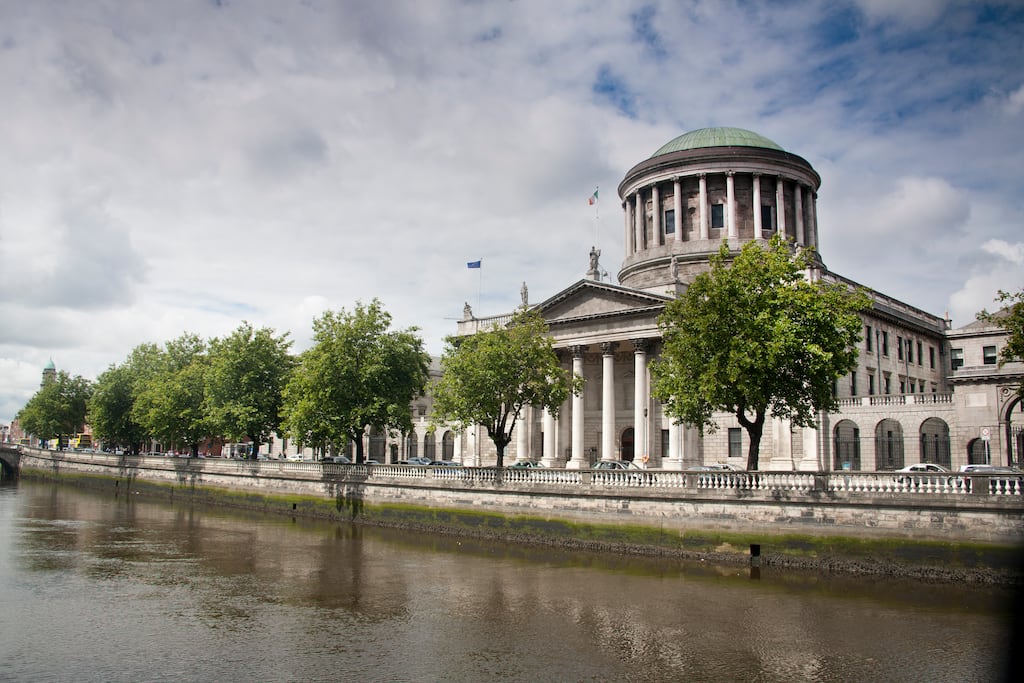The High Court erred in concluding that the public interest in cheaper drugs can override the rights of a patent holder before a claim of patent invalidity has been determined, the Court of Appeal (COA) has ruled.
Ms Justice Caroline Costello said the High Court erred in principle in considering that patent holder Biogen had a “monopoly to which it was not entitled” in the form of its multiple sclerosis drug, Tecfidera.
She said there was “nothing unlawful” in the conduct of Biogen in its application for and its exploitation of a parent patent that underpinned the divisional patent for its drug. Biogen’s parent patent enjoyed a presumption of validity and there were “no gains unjustly made at the expense of the taxpayer”, the judge added.
The COA granted Biogen MA Inc and Biogen International GMBH an order restraining two Neuraxpharm firms from launching their generic drug until the full High Court dispute has been determined at trial.
RM Block
Biogen claims the Neuraxpharm parties are infringing its patent, while Neuraxpharm claims Biogen’s patent is invalid.
The High Court’s Mr Justice Michael Twomey had refused Biogen’s request. He said restraining Laboratorios Lesvi SL and Neuraxpharm Ireland Limited, which are part of the Neuraxpharm group, from launching their generic multiple sclerosis drug here would cost the Health Service Executive (HSE) about €8 million during the 18-month period leading to the trial of the action.
Mr Justice Twomey said the HSE paid €1,030 per 240mg dose of Biogen’s Tecfidera, while the generic Dimethyl Fumarate Neuraxpharma would cost €418 for the same quantity.
Neuraxpharm claims the divisional patent underlying Tecfidera is invalid as a parent patent was revoked in 2016 by a division of the European Patent Office for various reasons, including that it did not involve an inventive step. Affirmation of this on appeal in 2022 “definitively” holds the parent patent as invalid, Mr Justice Twomey ruled.
He said Biogen had an unlawful monopoly in Tecfidera for seven years, with the Irish taxpayer likely paying significant sums to which the firm was not entitled.
There was clearly a fair issue to be tried regarding whether Neuraxpharm had infringed the divisional patent and if this patent was valid. The balance of justice favoured refusing to grant the injunction Biogen sought, as damages would be an adequate remedy if it transpired the injunction was wrongly refused, he added.
An earlier injunctive order, restraining the launch of the generic brand, continued to allow for Biogen’s appeal to the COA to be determined.
Biogen argued before the COA that the trial judge failed to give adequate weight to the fact the divisional patent was independent and presumptively valid regardless of the fact the parent patent had been revoked.
The judge also incorrectly adopted the saving of taxpayers’ money as the real foundation for his entire approach to the application, Biogen submitted among its complaints.
Ms Justice Costello said it was not at issue that Biogen and Neuraxpharm had each raised fair issues to be tried. The main issue in the appeal was Mr Justice Twomey’s assessment of the balance of justice and whether he considered matters he ought not to have, she added.
The revoking of the parent patent was “in no way unusual” and did not mean the rights holder’s monopoly protection was in any way illegal, she said. The profits earned by Biogen based upon the parent patent had “simply no relevance” to the injunction, she added.
She disagreed with the High Court’s conclusion based upon the evidence “or the lack thereof” that the case for the invalidity of the divisional patent was strong. Ms Justice Costello said this was not simply a matter of reading across from the parent patent to the divisional one. Neuraxpharm would need to establish invalidity based on independent expert testimony, she added.
The presumptive validity of the patent was properly determinative of the balance of justice on all the facts of the case, and an injunction should have been granted, she said.
Mr Justice Seamus Noonan and Mr Justice Senan Allen agreed with the ruling.

















